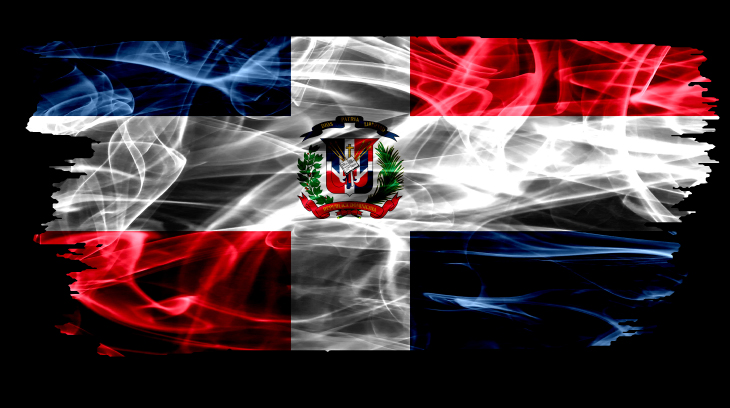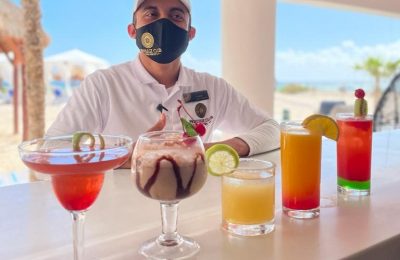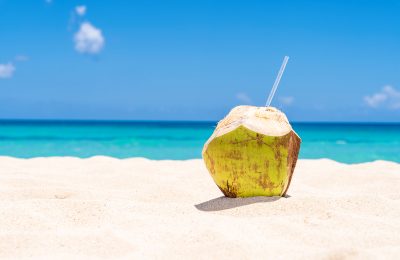We are sure that you are already familiar with the charming smiles shared by the Dominican people, and the merry steps of the merengue. Now, you just have to learn some Dominican local phrases.

Below we share a few words that will surely sound familiar. Either on an adventure outside the resort, or while listening to the team of each hotel as they chat.
- Buquí: is a person who eats a lot. Typical Dominican action!
- Chele: Penny
- Colmado: It is a popular business of the Dominican family. Ideal for all your convenience purchases.
- Con-con: It is the part of the rice that is stuck in the pan. It is typically eaten with some beans or stew residue.
- Gua-gua: It is the public transport bus.
- Concho: Colloquial name given to the public transport car.
- Motoconcho: It would be the motor public transportation.
- Jumo: It is the effect of drinking a lot of alcohol.
- Mangu: Typical dish! You can find this banana puree boiled in the buffets of the Dominican Republic.
- Papaupa: refers to a very important person
- Pica-pollo: means “fried chicken”
- Pin-pun: means “Equal”
- Quedao: Something out of fashion
- Tiguere: Person with a lot of knowledge of life.
- Un monton: Part of the Dominican metric system, which refers to a large amount.
- A chin: another Dominican measure. This word means “very little”. For example: Do you like bachata? Yes, but only very little (un chin).
- Una fria: It is how you should ask for a “cold beer”
- Yola: It’s a small boat
- Chichigua: Refers to the “comet” that children fly
- Gomero: person who changes car wheels and fixes vehicles.
- Guayar: it is “grating”, for example, the coconut
- Mofongo: dish based on green plantains fried and crushed with pork or beef. Ask for it with garlic water! – And do not forget the avocado.
- Chinola: means passion fruit
- Juquiao or arrebatao: is someone who has lost the judgment.
- Agallú: when someone wants to get something at all costs and in the end could not, they say: “that happened to you, agallú”.
- Deguabinar: it’s when you break something.
- A mojiganga: means something not very serious.
- Moño: means “hair”.
- Feeling rulay: means feeling very good. Your friend asks you: how are you? You answer: I feel rulay!
- Salami: dominican delicatessen. Important not to be confused with salami of European origin. Usually served in stews, sandwiches or fried, “salami frito”.
- Ahorita: means “right now”. However in Dominican that is not necessarily true.
- Voy: Means “I’m going”. It should not be taken urgently.
- Matatan: is the one who has the respect of all. But is not necessarily a very smart person.
- Montro: He is the one who genuinely has the respect of all.
- Boca-Agua ‘: person without foundations.
- Chimicuí: person of short stature
- Ciguatera: set of symptoms that result from food poisoning.
- Romo: is “rum”
- Zafacón: Americanism (safety can) is the trash can or trash can.
- Chercha: Americanism that comes from “cheers” and “church” and refers to a good time or party.
- Peje: is “fish”
- No me hagas cocote: means “do not give me hope”, “do not make plans”.
- Mai: is a mother.
- Paí: is father.
- Bacano: means “cool”.
- Alebrescado: is to be anxious about something good.
- Hevi-nais: means “very good”
- Hartura: is what you feel when you eat a lot.
- Yala:means “ok”
- Manso: means “quiet” o “chill”
- Tich’er: refers to “t-shirt”
So there oyu have them, a small portion of local Dominican phrases. In your next adventure on the island, do not hesitate to ask the waiter for a “fria”. Surely he will appreciate your interest in the local culture. Throw the garbage in the “zafacón” and prepare for a “hartura” of “mangu” with “salami frito” and a “chinola” juice.
Visit the Travel Recommendations section and read more about popular destinations and practical travel tips.








